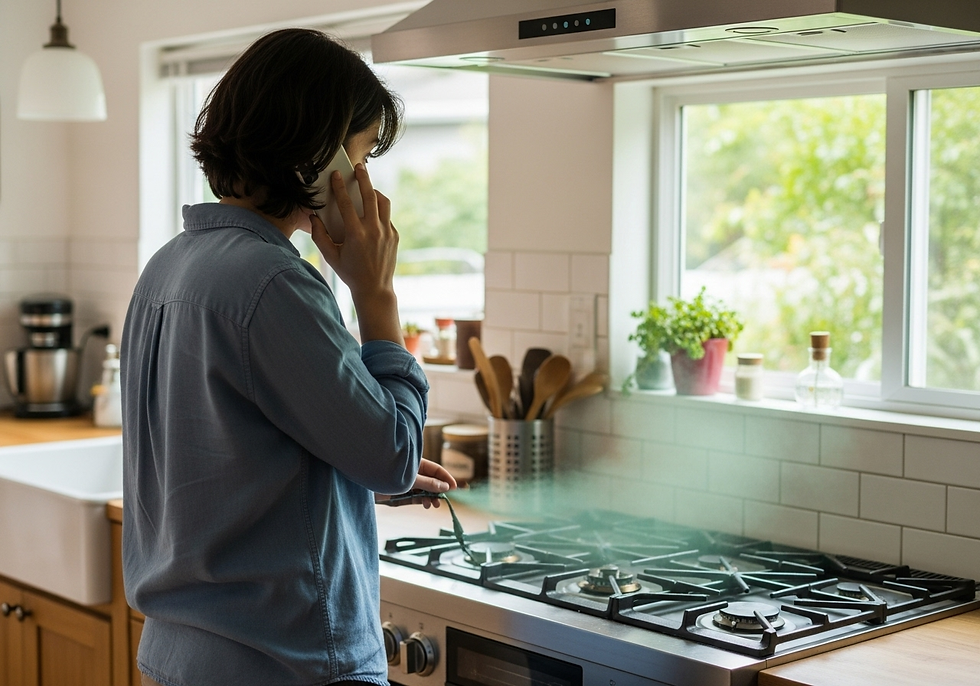Who Pays for Plumbing Problems in a Strata Property?
- kristy2411
- Oct 22
- 4 min read
Updated: Nov 21
When a pipe bursts or a mysterious leak appears in your apartment, the first question that usually follows is: “Who pays for this - me or the strata?”
If you live in a strata property, understanding the difference between common property and lot property can save you time, stress, and surprise repair bills.

Common vs Lot Property - Who’s Responsible?
In strata living, ownership is divided between common property and individual lots. This distinction determines who is responsible for plumbing maintenance and repair costs.
Common property includes all the shared areas and infrastructure that serve multiple units.
Typically this covers:
Main water supply lines serving more than one lot
Sewer pipes located in shared walls or beneath driveways and gardens
Roof plumbing, gutters, and downpipes
Plumbing in foyers, stairwells, and outdoor common spaces
Hot-water systems shared between units
The owners corporation (strata) is responsible for maintaining and repairing these areas. Funding usually comes from strata levies paid by all owners.
Lot property refers to everything within the boundary of your individual unit, including:
Internal plumbing fixtures (taps, toilets, sinks, showers)
Pipes and drains that only serve your unit
Kitchen and bathroom plumbing inside your lot
Individual hot-water systems not shared with other residents
If a plumbing problem is confined to your unit, you - the owner - are responsible for organising repairs and covering the cost directly with your plumber.

The Grey Areas (and How to Navigate Them)
Not all leaks fit neatly into “common” or “lot” categories. Some pipes serve only one apartment but run through a shared wall. Depending on your strata plan, that pipe might still be considered common property.
Your strata by-laws and plan will spell out these boundaries. If there’s a disagreement, your strata manager can request advice from Fair Trading NSW
When a leak inside one apartment causes damage to common property or neighbouring units, things get trickier. Liability may involve multiple parties and even strata insurance. In these cases, working with an experienced Northern Beaches strata plumber can help identify the true source of the issue quickly.
Typical Plumbing Problems in Apartment Buildings
Strata properties often face plumbing challenges that don’t occur in standalone homes. Common issues include:
Blocked Drains and Sewers
Shared drainage systems can easily become clogged by kitchen waste, wipes, and tree roots. If the blockage is in a shared pipe, it’s strata’s responsibility. If it’s isolated to your lot, you’ll need to call your own plumber.
For fast help, our Emergency Plumbing Team provides same-day response across the Northern Beaches.
Water Leaks
Leaks can start in one apartment and show up two floors below. A qualified strata plumber will trace the source and confirm whether it’s common or lot property. Acting quickly can prevent major water damage and costly insurance claims.
Hot Water System Failures
Shared hot-water systems are usually strata’s responsibility. Individual systems are the lot owner’s. Always check before replacement, as approval may be required for new installations.
Burst Pipes
Corrosion, cold weather, or water pressure can cause sudden bursts. Call a Northern Beaches plumber immediately to shut off water and prevent further damage.
Waterproofing Failures
Old bathroom membranes often fail and cause leaks to units below. If the problem stems from original construction, strata may be responsible. If it’s wear and tear within your lot, the cost usually sits with the owner.
Low Water Pressure
When pressure issues affect multiple units, the culprit is likely a common property supply line. If it’s only one apartment, it’s probably a fixture or internal pipe problem.
How Strata Plumbers Keep Buildings Running Smoothly
Managing plumbing across multiple dwellings takes experience and coordination. Professional strata plumbers bring specialised knowledge and procedures, including:
Preventative Maintenance Programs - Regular inspections of shared systems, roof plumbing, and main lines prevent emergencies and extend system life.
Emergency Response Protocols - 24/7 call-outs for major leaks or sewer backups with direct coordination through strata managers.
Detailed Reporting - Written reports outlining condition, recommendations, and repair history - helping strata committees plan budgets confidently.
Coordination with Lot Owners - Organising access, communicating timeframes, and ensuring minimal disruption to residents.
Regulatory Compliance - Ensuring all plumbing work complies with Australian Standards and strata approval processes.

Why Local Experience Matters
Northern Beaches and Sydney strata buildings often face extra challenges: salt air corrosion, older pipes, and steep coastal terrain that affects drainage. Local knowledge can make the difference between a quick fix and recurring problems.
Our Koalafied Plumbing team works closely with strata managers and owners to deliver reliable maintenance, fast emergency repairs, and long-term solutions tailored to local building conditions.
Call our Northern Beaches office today on 0434 614 760 to arrange a plumbing inspection or maintenance program for your strata property.
FAQs – Common Questions about Strata Plumbing
Who pays for a leaking pipe in a strata apartment?
If the pipe is common property (shared infrastructure), the strata corporation covers it. If it serves only your unit, it’s your cost.
What if my neighbour’s leak damages my ceiling?
Notify your strata manager and insurer straight away. A licensed strata plumber can locate the source and clarify liability.
Does strata insurance cover plumbing issues?
Most policies cover resulting damage to common property - not the pipe repair itself.
How do I know if a pipe is common or private?
Check your strata plan or contact the strata committee. Each scheme defines boundaries differently.
How can we prevent plumbing problems in strata buildings?
Schedule annual inspections, clean drains regularly, and ensure waterproofing is maintained. Preventative maintenance saves thousands in the long run.




Comments